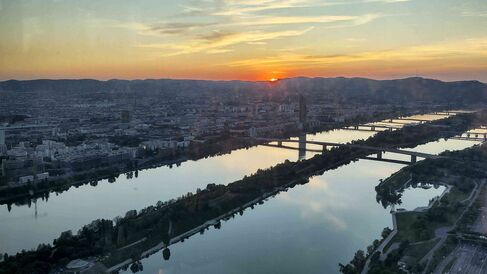
The European Geosciences Union (EGU) General Assembly is the largest geoscience conference in Europe, with nearly 21,000 participants from over 120 countries. The conference brings together geoscientists, particularly early career researchers, from all over the world to one meeting covering all disciplines of the Earth, planetary, and space sciences. In addition to scientific research, there is also a strong representation from fields such as operational forecasting, scientific computing and software engineering. This year, ICCS’s Senior RSE Jack Atkinson traveled to Vienna from 27 April-2 May to take part.
Jack presented on redeploying a neural network parametrisation within the Community Atmosphere Model (CAM) with the aim of running stable simulations with improved precipitation prediction. He discussed the challenges involved in moving this parametrisation between models, as well as the software architecture and engineering considerations necessary for redeploying such parametrisation schemes.
Jack noted that the role of research software engineering in the conference was increasing each year, with sessions on FAIR principles in geosciences (Findability, Accessibility, Interoperability, and Reuse of digital assets) and BUGS: Blunders, Unexpected Glitches, and Surprises in code. He also highlighted that FTorch, the library developed and maintained by Jack and the ICCS to couple PyTorch models to Fortran code, was being used heavily in the hybrid version of the Icosahedral Nonhydrostatic (ICON) model by DWD.
If you’d like to hear more about Jack’s experience at EGU25, you can check out his blog.
